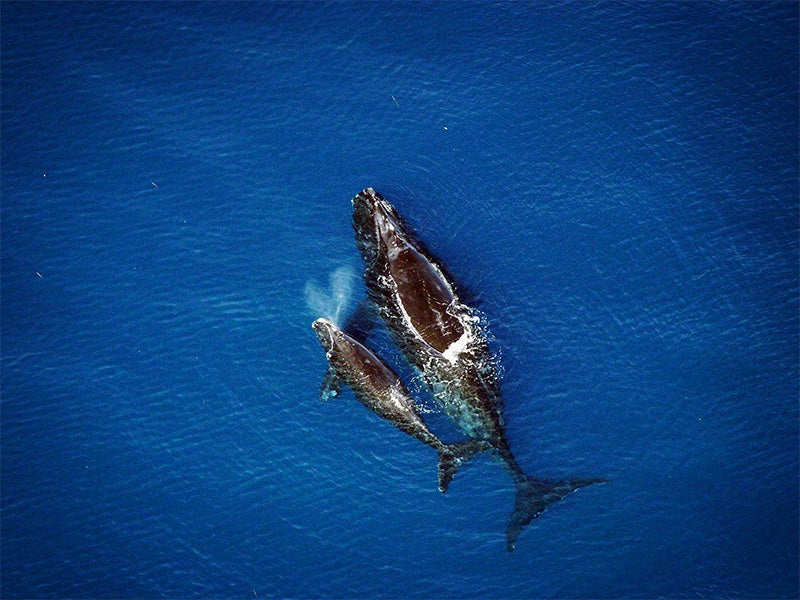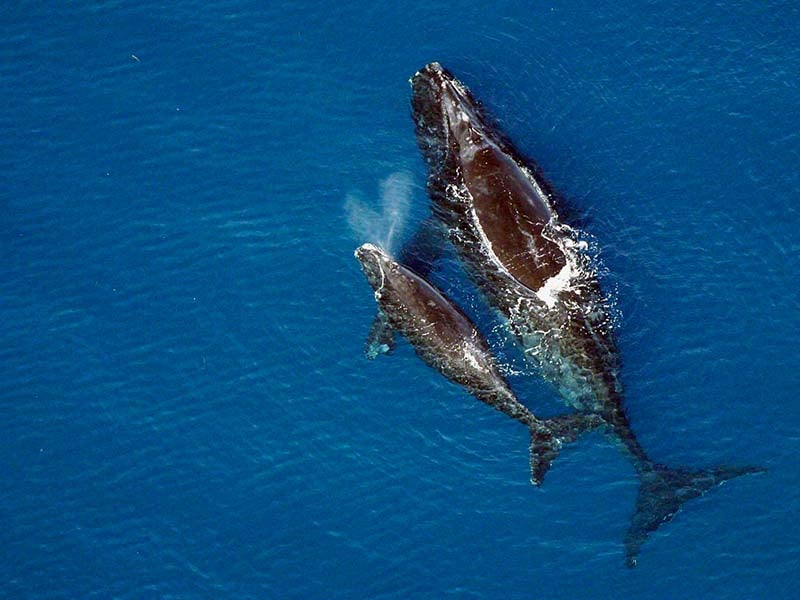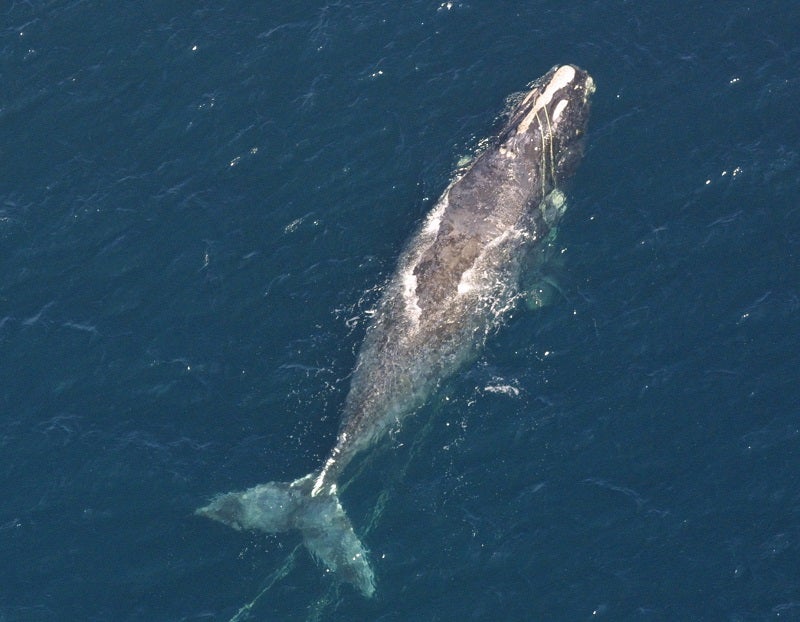Saving the North Atlantic Right Whale
The critically endangered North Atlantic right whale could be facing extinction as early as 2040.
Regional Office / Program
Case Overview
Distinct “v-shaped” spout patterns spray a dozen feet into the crisp ocean air—a sure sign that right whales have returned to calve off the coasts of Florida and Georgia. The few remaining whales come each spring, sometimes swimming close enough to spot from shore.
Although listed as endangered in 1973, the North Atlantic population of right whales has made slow progress towards recovery. Earthjustice and our clients and partners have been working for years to ensure the survival of the species, including protecting the whales’ calving grounds near Jacksonville, Florida. With fewer than 460 total whales left, even one death is a catastrophe.
The right whales’ very name suggests why they were hunted to the brink of extinction. Whalers in the 18th century thought of them as the “right” whales to hunt. They were easy to spot from shore, floated to the surface when killed and provided a bounty of oil and meat.
Today, although no longer hunted, right whales are still victims of human activity. Because their calving grounds and habitat stretch through some of the busiest shipping channels and fishing spots in the world, right whales are often struck by passing ships or become entangled in fishing gear.

Case Updates
Case page created on February 7, 2018.

